Future of Microchips
The U.S. semiconductor economy starts here.
Semiconductors and microchips power the devices we use every day, from smartphones and refrigerators to life-saving health care technology and clean energy equipment. All industries on the planet, and the products they make, rely on semiconductors — and the people who create them.
The booming semiconductor industry is hungry for talent and ripe for innovation. Texas is the capitol of the U.S. semiconductor resurgence, and with over $1.4 billion in semiconductor investments, The University of Texas at Austin is at the center of it all. We are building the most intensive, hands-on educational experience for the next generation of aspiring semiconductor engineers and scientists while advancing fundamental and applied research to propel the industry forward.
Interested in:
Semiconductor Degrees | Centers & Facilities | Areas & Faculty | Startups & Ecosystem | Updates
Semiconductor-related research centers at UT
Of research, cleanroom and fabrication laboratory space
Industry partners working with us on semiconductor research and projects
The World Needs More Semiconductor Engineers
U.S. semiconductor companies are expected to add 31,000 new masters-level jobs by 2030. But nearly 40% of those jobs risk going unfilled due to a lack of qualified candidates. We’re changing that.

Leading the way
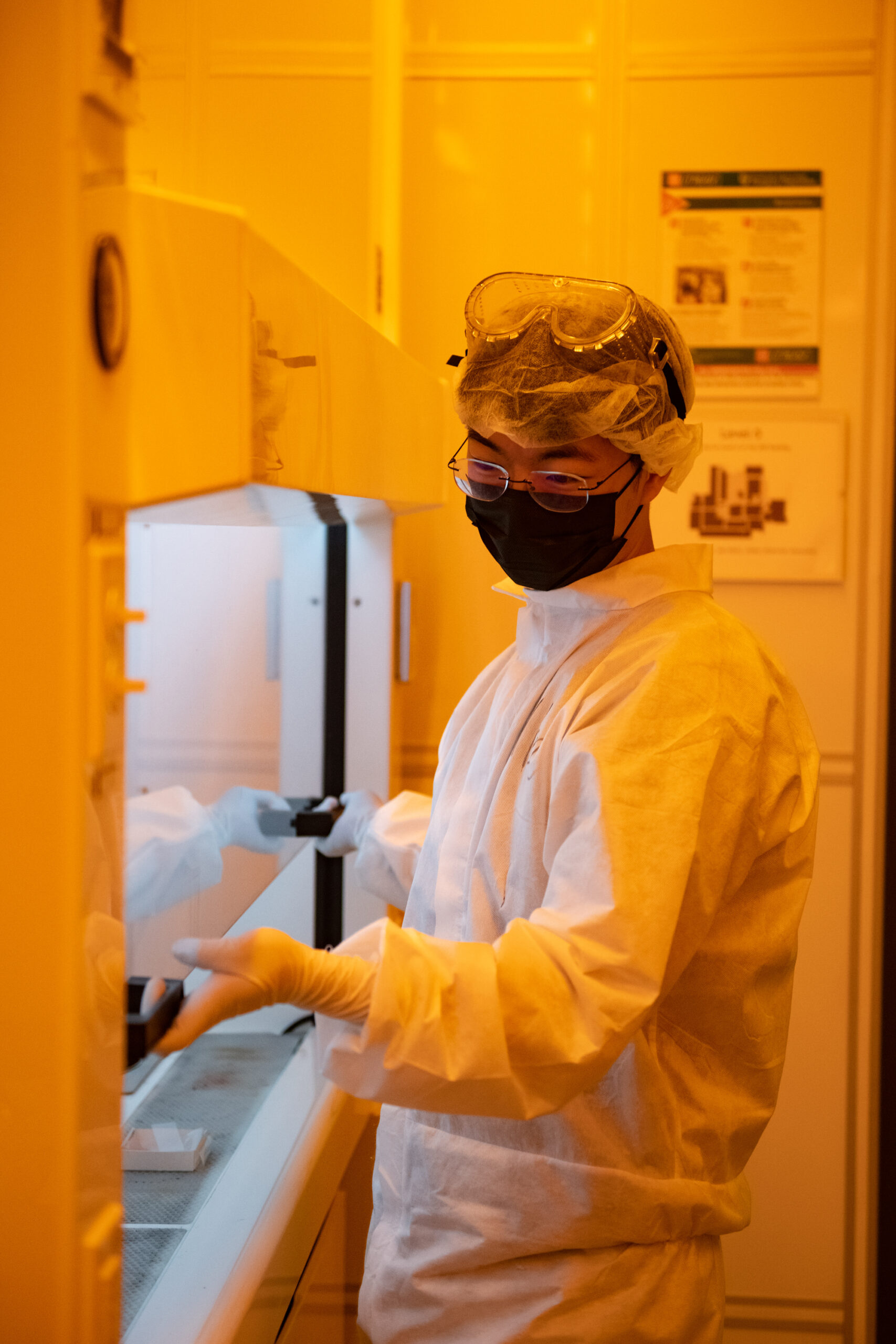
Semiconductor Degrees
In 2025, UT will offer a new Master of Science in Engineering with a major in semiconductor science and engineering. The first of its kind in Texas and one of a select few nationwide, the program will include new coursework designed in partnership with Apple, Cadence, NXP and Silicon Labs to modernize US semiconductor education. A new Minor in Semiconductor Science and Engineering is also offered to undergraduate students.
The Cockrell School and Texas Engineering Executive Education now offer a new graduate certificate focused on continuing education and career advancement.
We also partner with Austin Community College, where professional technicians are trained in this high-demand industry.
Research Centers and Facilities
With more than 400,000 square feet of research, cleanroom and fabrication laboratory space, UT is equipped to innovate, educate and collaborate. New facilities, like the UT Austin-Taylor Center and the Montopolis Facility, continue to expand our research space.
Center for Dynamics and Control of Materials
Microelectronics Research Center
Texas Institute of Electronics
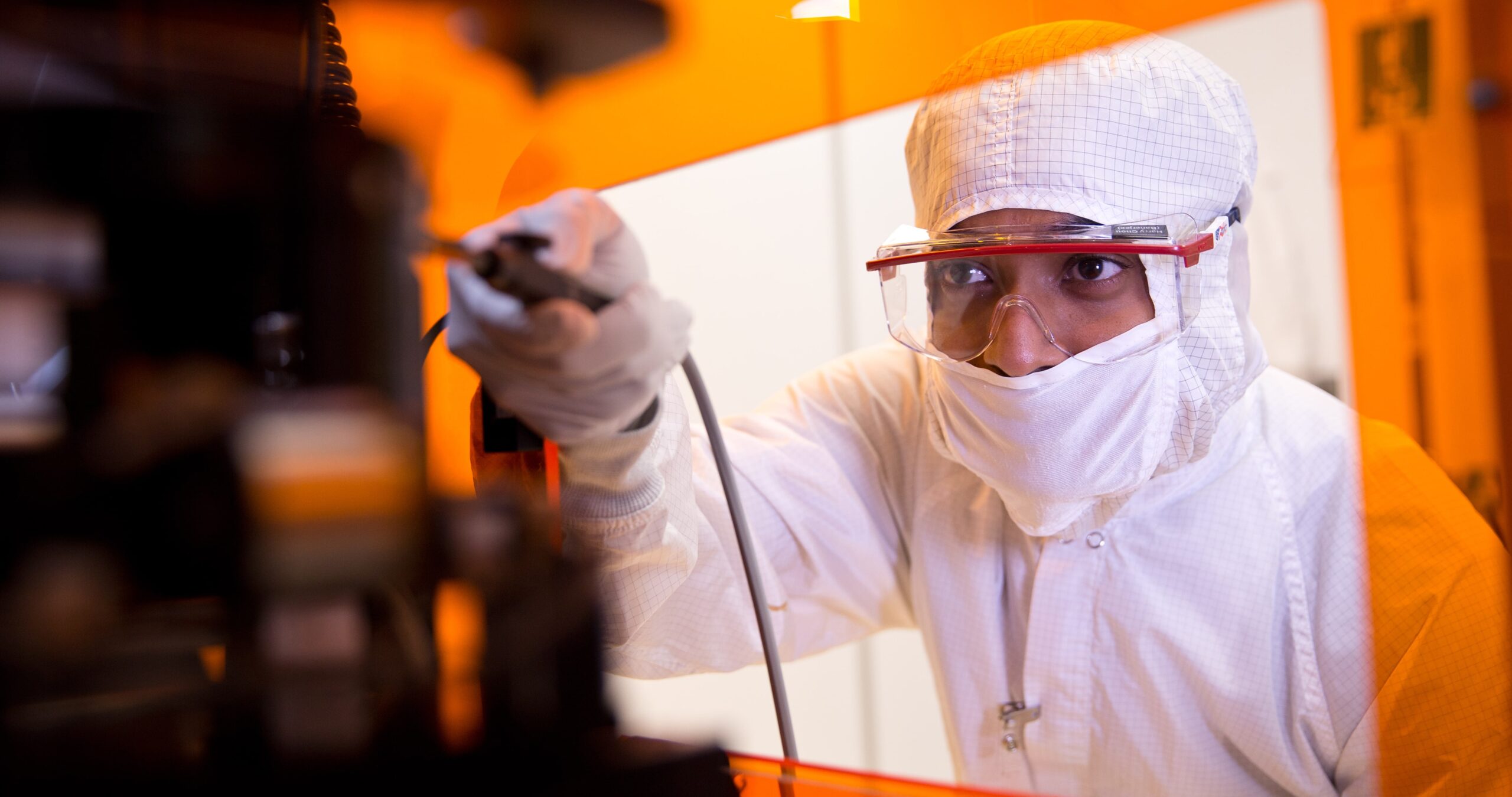
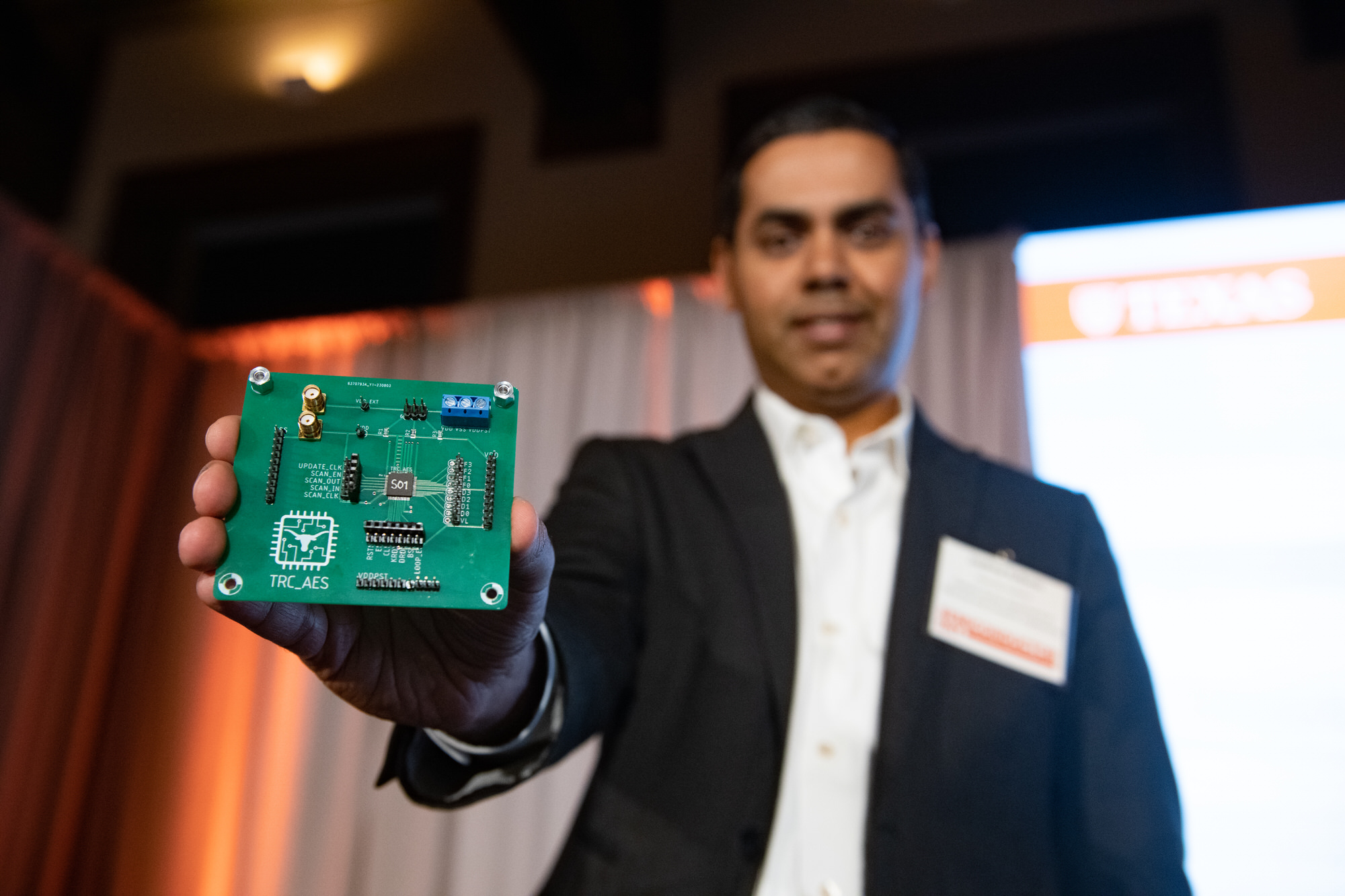
Research Areas & Faculty
The Cockrell School has world-class faculty members working on all areas of semiconductor engineering, including two research teams that are part of a massive semiconductor grant program from the National Science Foundation funded by industry leaders and the federal CHIPS Act. From materials synthesis to characterization and nanofabrication, our faculty are advancing microelectronics research, including 2D semiconductors for low-power flexible electronics, nanoscale photonic devices and systems, ultra-high bandgap semiconductors and MEMS (micro electromechanical systems) and more.
Our researchers are particularly focused on semiconductor manufacturing, circuits and systems, semiconductor devices, and heterogeneous integration and packaging. Learn more about additional research areas below.
Electronics, Photonics and Quantum Systems
Startups and Ecosystem
From high-profile partnerships with companies like Samsung to college-level initiatives like the FUSE program, The University of Texas at Austin leads the way in providing resources for upcoming startups and forging collaborations to build a robust ecosystem of innovation. The Cockrell School’s Texas Innovation Center helps faculty and students transform discoveries into impactful startup companies. With 55+ startups working in the microchips space at UT Austin, we are committed to fostering a space on the Forty Acres for this growing industry.
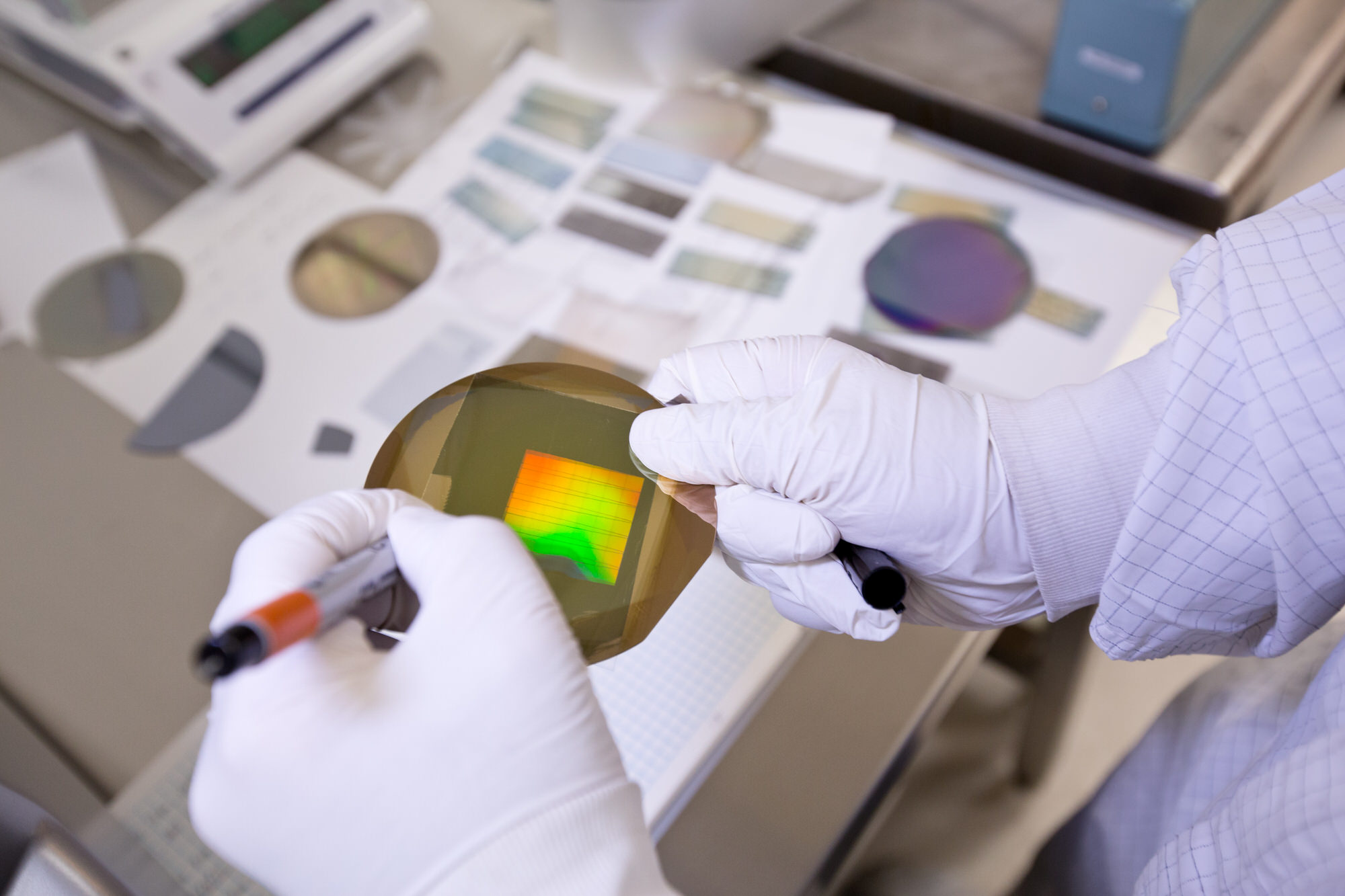
Join Us in Leading the Future of Semiconductors
Cockrell collaborates with partners to co-design and invest in innovative ideas to stay ahead and effectively address research and talent gaps. To explore partnership opportunities and discuss models of engagement, connect with the Cockrell School Industry & Research Relations Office.
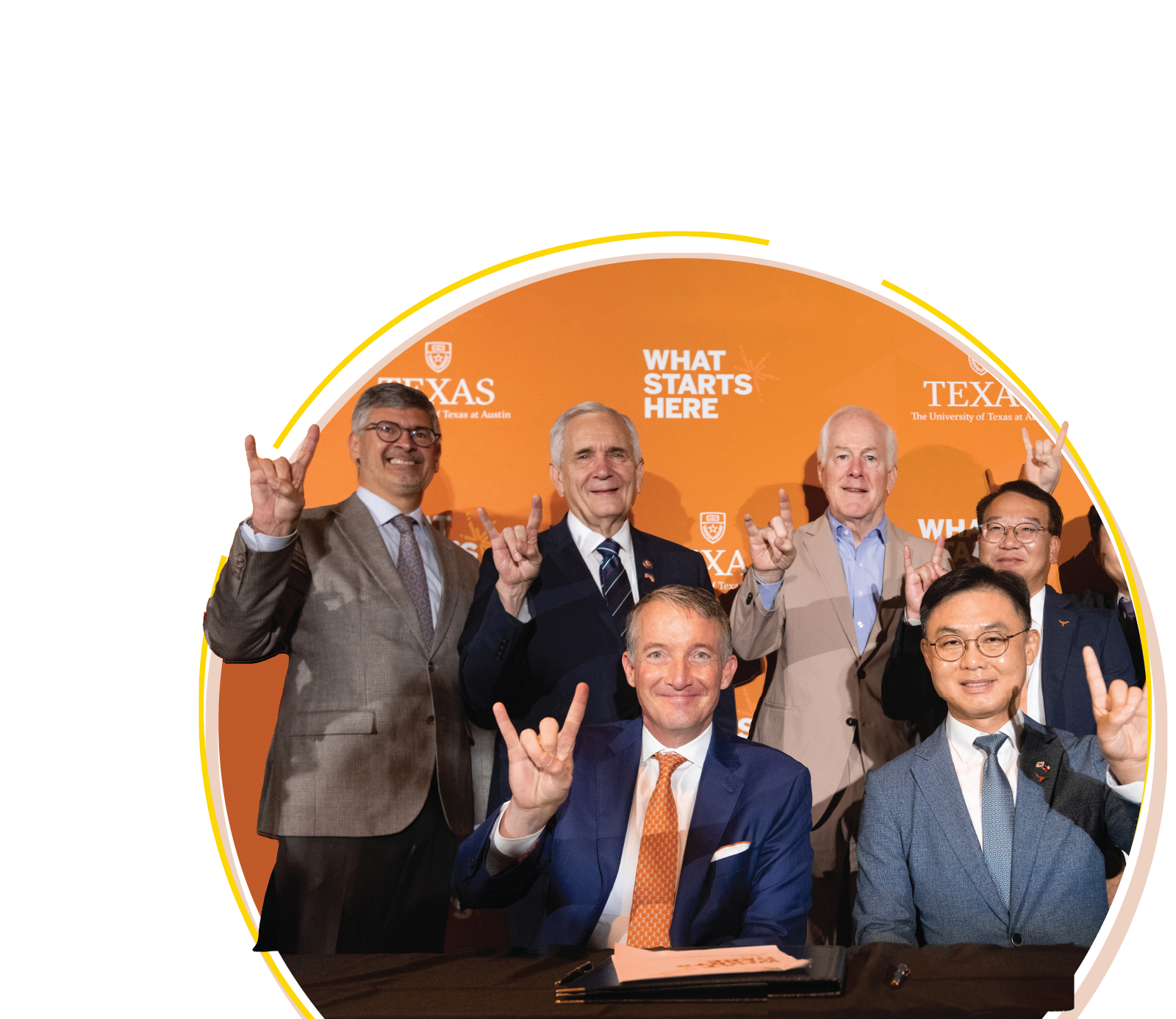
Collaborations
The Cockrell School is building the future of the U.S. semiconductor economy with teams across the Forty Acres and beyond. Below are just a few of our collaborators:
College of Natural Sciences
LBJ School of Public Affairs
McCombs School of Business
Samsung
Texas Advanced Computing Center
Texas Institute of Electronics
Texas Quantum Institute

